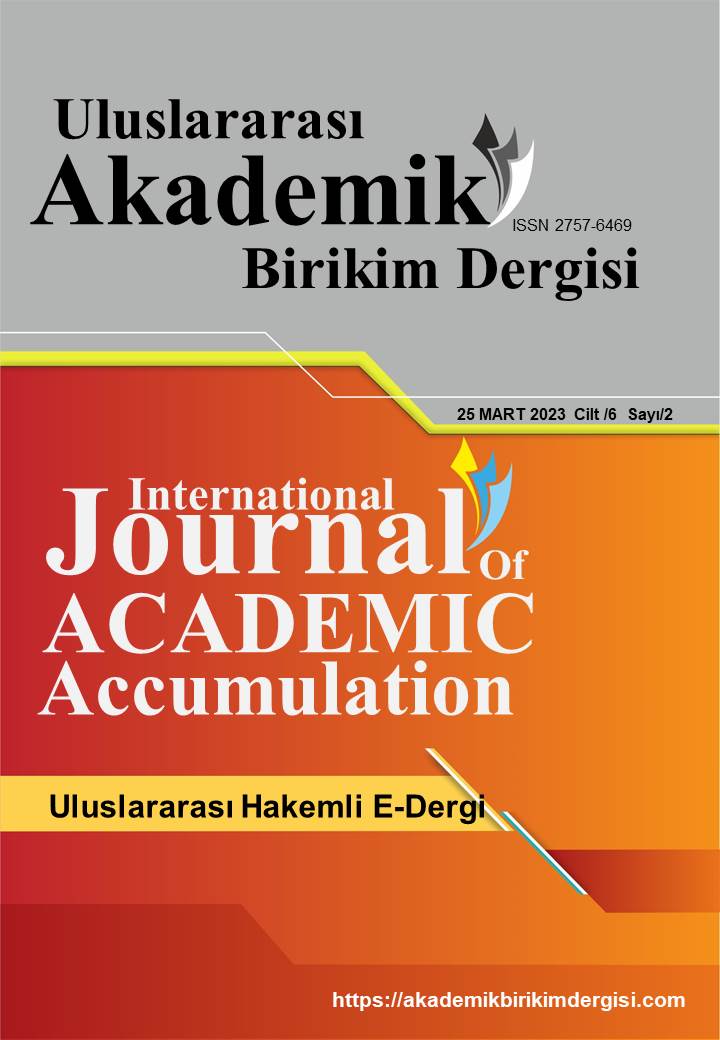Etkin Piyasalar Hipotezi Kapsamında İmalat Sektöründe Haftanın Günleri Anomalisi
Anahtar Kelimeler:
Efficient Market, Covid-19, Market FormÖzet
The Efficient Markets Hypothesis defines investors as individuals who are able to solve problems in order to maximise their utility and who do not let their emotions interfere with their decisions. It argues that investors are rational, that is, they act like a robot. In the Efficient Markets Hypothesis, rational people make certain decisions and make calculable preferences with the expected utility theory when making investment choices, and the Efficient Market Hypothesis, which argues that the information entering the market will be automatically reflected in the prices, accepts investors as the same and error-free. In this study, in addition to the 2001 and 2008 crisis periods, the impact of which has been revealed in many studies, it has been investigated whether there is a days of the week effect on stocks traded in the sub-sectors in the manufacturing sector according to the Public Disclosure Platform (KAP) classification during the Covid-19 period. Considering for one sector, three crisis periods and each crisis period consisted of two parts as pre- and post-crisis periods, and as a result, six periods were analysed for one sector. Since eight sub-sectors were analysed, a total of forty-eight periods were analysed and the days of the week effect was examined. OLS dummy variable method was used in the research. When the results are analysed, the average returns on Monday twelve times, Tuesday five times, Thursday ten times and Friday three times in forty-eight periods differed significantly from the BIST average return.
Referanslar
Abdioğlu, Z. Ve Değirmenci, N. (2013). İstanbul Menkul Kıymetler Borsasında Mevsimsel Anomaliler, Business and Economic Research Journal, 55-73.
Akerlof, G.A. (1970). The Market for "Lemons": Quality Uncertainty and the Market Mechanism, The Quarterly Journal of Economics, 84(3), 488-500.
Aliyev, F. (2016). Etkin Piyasa Hipotezinin Doğrusal Olmayan Yöntemlerle Test Edilmesi: Borsa İstanbul Üzerine Uygulama, Yayımlanmamış Doktora Tezi, İstanbul Üniversitesi, İstanbul.
Barone, E. (1990). The Italian Stock Market: Efficiency and Calendar Anomalies, Journal of Banking & Finance, 14(2-3), 483-510.
Berk, N. (2005). Finansal Yönetim, İstanbul: Türkmen Kitapevi.
Berument, H. ve Kıymaz, H. (2001). The Day of the Week Effect on Stock Market Volatility, Journal of Economic and Finance, 25(2), 181-193.
Choudhry, T. (2000). Day Of The Week Effect İn Emerging Asian Stock Markets: Evidence From The GARCH Model, Applied Financial Economics, 10(3), 235-242.
Çelik, T.T: (2007). Etkin Piyasa Hipotezi ve Gelişmekte Olan Hisse Senedi Piyasalarında Eşhareketlilik, Yayımlanmamış Doktora Tezi, İstanbul Teknik Üniversitesi, İstanbul.
Fama, E. F., & French, K. R. (1998). Value versus growth: The international evidence. The journal of finance, 53(6), 1975-1999.
Frank, K.R. (2011). Investment Analysis and Portfolio Management, Cengage Learning. Gibbons,
Gibbons, M. R., & Hess, P. (1981). Day of the week effects and asset returns. Journal of business, 579-596.
Kıyılar, M. (1998). Etkin Pazar Kuramının İMKB’de Test Edilmesi, Yönetim Dergisi, 29, 34-51.
Konuralp, G. (2005). Sermaye Piyasaları: Analizler, Kuramlar ve Portföy Yönetimi, İkinci Baskı, İstanbul.
Kumar, H., & Jawa, R. (2017). Efficient market hypothesis and calendar effects: Empirical evidences from the Indian stock markets. Business Analyst, 37(2), 145-160.
Maymin, P. Z. (2011). Markets are efficient if and only if P= NP. Algorithmic Finance, 1(1), 1-11.
Önderoğlu, G.H. (1993). Etkin Piyasa Teorisi ve İMKB Üzerine Bir Uygulama, Yüksek Lisans Tezi, İstanbul Üniversitesi.
Shleifer, A. (2000). The Limits of Arbitrage, The Journal of Finance, 52(1), 35-55.
Thaler, R. H. (1987). Anomalies: the January effect. Journal of economic perspectives, 1(1), 197-201.

